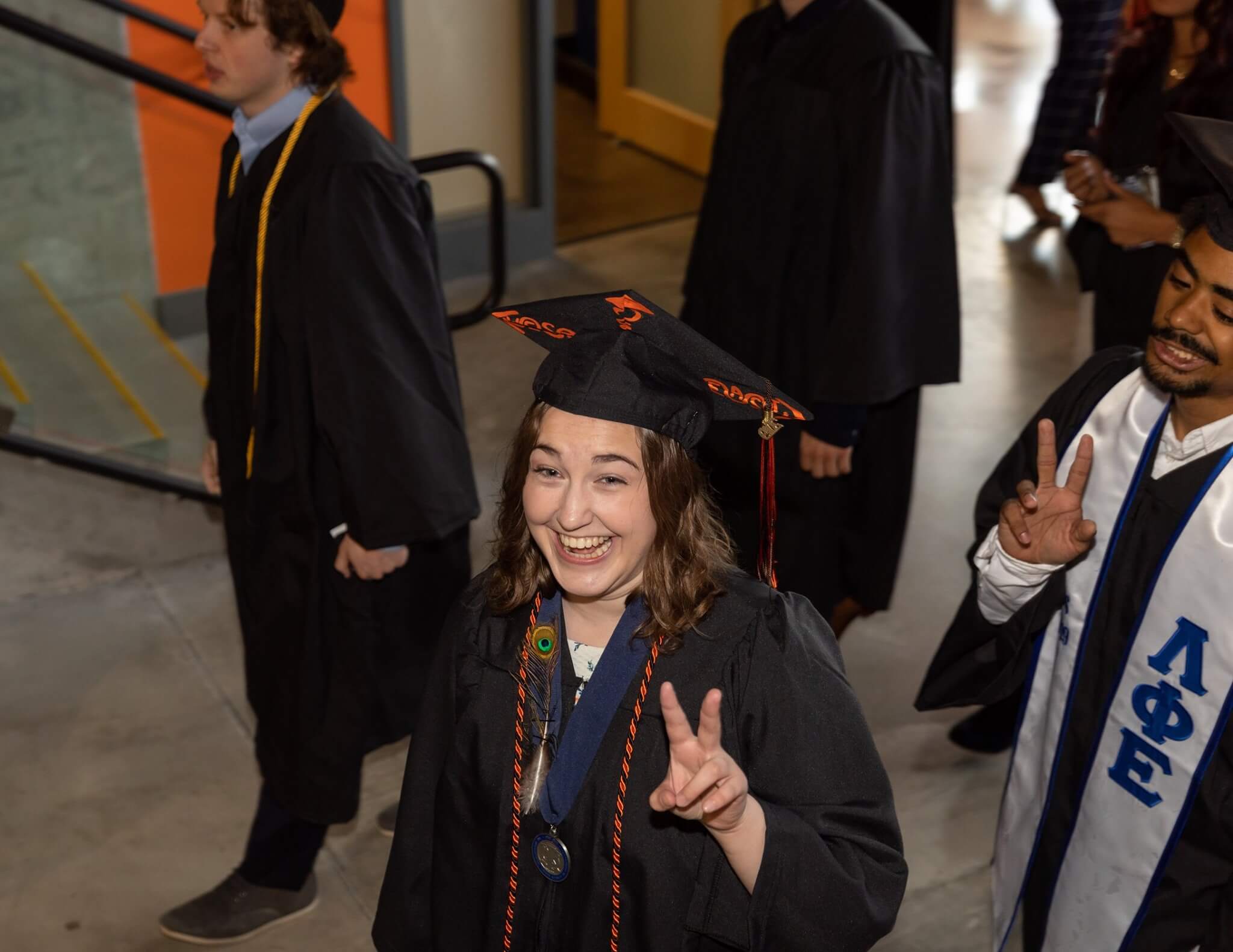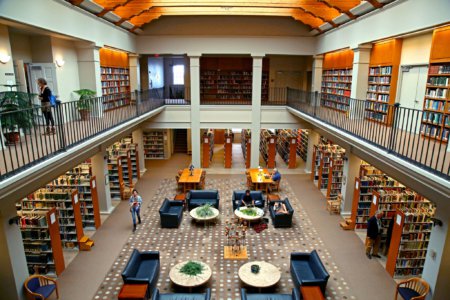
Look behind the education of today’s success stories and you’ll find many have a background in the liberal arts. For all the hype around STEM (that’s Science, Technology, Engineering, Mathematics) degrees, subjects like philosophy, art, music, languages, literature and more have prepared — and continue to prepare — many for fulfilling professional roles.
Starbucks CEO Howard Schultz majored in Communications, before going on to a job with Xerox and a Swedish drip coffee maker, before moving to Starbucks. Avon’s first female CEO Andrea Jung studied English Literature as an undergraduate before going on to a training programme at Bloomingdale’s before leading the world’s largest direct cosmetics seller. Former Hewlett-Packard CEO Carly Fiorina pursued a bachelor’s in Medieval History and Philosophy.
All agree their liberal arts backgrounds were valuable. “I learned how to condense a whole lot of information down to the essence,” says Fiorina. “That thought process has served me my whole life … I’m one of these people who believe we should be teaching people music, philosophy, history, art.”
Fiorina is right. Liberal arts subjects emphasise soft skills, i.e.g the skills to think critically, creatively and to communicate effectively — all of which are highly relevant in today’s job market. Thus, if you seek a future as an agile graduate with many professional opportunities in different career paths, consider a liberal arts education from these US universities:
Salisbury University
Liberal arts education.Community-engaged campus. Experiential. Consistently top-ranked. Best value. These define Salisbury University (SU).
Located in Salisbury, Maryland SU is a university of national distinction. At this public university, you’ll find students unlocking their talent and creativity as they pursue any of the 18 majors and over 40 minors in the arts, humanities and social sciences at the Fulton School of Liberal Arts.
Here, they’re connecting with faculty members in small classes with a student-to-faculty ratio of 15:1. They’re building foundational skills in research, analysis, communications, teamwork and leadership, cultural competence, and technology.
Beyond classrooms, they’re bringing theory to life in experiential learning opportunities, whether it’s through local internships, civic engagement, undergraduate research , creative performance, Living Learning Communities and so forth.
Little wonder then that SU is consistently ranked one of the top colleges and best value in the US by the likes of US News and World Report and Princeton Review, to name a few. Fulton School programmes in Conflict Analysis and Dispute Resolution, Communication, and Environmental Studies have all been nationally ranked.
SU’s greatest achievement, however, is in the success of its graduates. “I feel especially gratified to see how our students in the arts, humanities, and social sciences grow in talent, maturity, and professionalism over the course of their experience at SU,” shares Dr. Maarten Pereboom, Dean of the Fulton School of Liberal Arts.
SU also offers over 60 academic programmes spanning business, education, science, and health and human services. Find all of SU’s unique, vibrant and well-respected educational programmes here. International applicants can apply here — support for visa matters and English language proficiency are available
Rochester Institute of Technology: College of Liberal Arts
The College of Liberal Arts boasts many impressive statistics: 95% career outcome rate six months after graduation, a 4:1 student-to-faculty ratio, a student body with 13 countries represented, US$2.9 million in sponsored research funding.

At RIT, you can pursue programmes such as Journalism, Sociology and Anthropology, Philosophy and Political Science. Source: Rochester Institute of Technology: College of Liberal Arts Facebook
This means as you pursue programmes such as Journalism, Sociology and Anthropology, Philosophy and Political Science, you will be able to study in small classes and receive personal attention from faculty and staff. There is funding for projects such as Body Camera Investigation and Comparative Cognition and Perception too.
“We sit at the heart of RIT’s mission, helping all students advance the exceptional through coursework, research opportunities, and academic programmes that instil an understanding of the world around us and promote critical thinking, ethical reasoning, and effective communication,” says Anna Stenport, Dean of the College of Liberal Arts.
Each student will be able to evolve into a leader at RIT. The College offers plenty of opportunities to harness your ability to be a leader in any setting. Whether it’s in small, informal groups to large, established organisations, you can gain experience in event management, working with executive leadership, shared governance, and group communication, among others.
Choose from over 300 clubs on campus to take on roles such as club officers and executive boards. At Student Government, you can get elected and appointed or you can volunteer to work with stakeholders around campus to improve the student experience, both in and out of the classroom.
University of Iowa: College of Liberal Arts and Sciences
At the College of Liberal Arts and Sciences (CLAS), 1,900 graduate students and 16,000 undergraduates are curating a rich liberal arts experience at the heart of a major research university. As they explore, discover, create, and engage in 69 undergraduate majors, almost 71 minors, and 21 interdisciplinary certificate programmes, they are preparing for successful careers and fulfilling lives.

The College of Liberal Arts and Sciences is home to thousands of students curating a rich liberal arts experience. Source: University of Iowa: College of Liberal Arts and Sciences Facebook
Founded in 1900, CLAS is the largest of the 11 colleges that comprise the University of Iowa. It is home to 37 departments spanning the visual, performing, literary, and cinematic arts; humanities; natural and mathematical sciences; social and behavioural sciences; and communication disciplines.
The African American Studies, BA covers basic facts, principles, key figures, and events related to African American experience in American society, plus the significant contributions of African Americans in the US and abroad. Students will also gain the tools for contextualising and understanding the intersectionality of race, class, gender, and/or sexual orientation in an effort to identify relevant challenges and solve human problems related to the African American community.
The Religious Studies, BA will develop students’ general understanding of several religious traditions or movements, their critical thinking skills by analysing and evaluating concepts and arguments, as well as their ability to communicate effectively in writing and speech. Many students choose to earn a second major or minor in related disciplines such as anthropology, biology, classics, English, history, journalism and mass communication, philosophy, political science, or psychology.
Oregon State University: College of Liberal Arts
If you seek an education that prepares you to embark on a lifetime of learning and to adapt to a rapidly changing world, head to the College of Liberal Arts at Oregon State University. Here, you’ll find major programmes leading to the Bachelor of Arts (BA) or Bachelor of Science (BS) degrees, with options, in 17 areas.

The College of Liberal Arts prepares students to tackle the enduring and contemporary issues facing our world. Source: Oregon State University: College of Liberal Arts Facebook
You can also gain a second degree in International Studies. At the postgraduate level, CLA offers master’s degrees in Public Policy, Applied Ethics, Creative Writing, Applied Anthropology, English, Hispanic Studies and History of Science, PhDs in Applied Anthropology and History of Science.
Whichever programme you choose, you will explore critical methods and crucial insights of the arts, humanities and social sciences. The goal is to prepare you to tackle the enduring and contemporary issues facing our world, as well as to thrive in challenging careers and forge a life of achievement, courage, contribution and meaning
What sets the College apart is its people. Specifically, its team of 336 expert faculty taking on the world’s biggest issues from social justice to food insecurity. This dynamic intellectual community conduct symphonies, design in virtual reality and study the past to forge solutions for the future.
You’ll join them in this academic home of 4,478 students. Expect a personalised experience paired with a robust liberal arts college experience, with one faculty member for every 15 undergraduate students.
The College also guarantees you’ll graduate in four years. Alumni can be found in successful roles in various fields, such as medicine, technology, the arts, media, law, policy, education, business and more.
*Some of the institutions featured on this article are commercial partners of Study International










